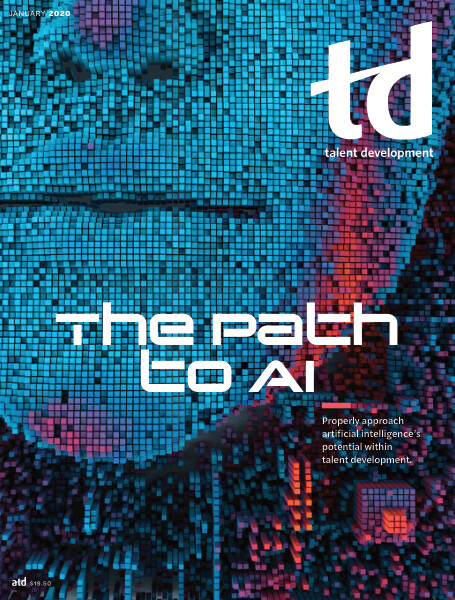TD Magazine Article
Member Benefit
4 Ways to Test Mentoring Assumptions
Content
When mentoring partners make assumptions about one another or about their mentoring partnership without checking them for accuracy, it can lead to misunderstandings and erosion of trust and communication.
When mentoring partners make assumptions about one another or about their mentoring partnership without checking them for accuracy, it can lead to misunderstandings and erosion of trust and communication.
Thu Jan 02 2020

Content
When mentoring partners make assumptions about one another or about their mentoring partnership without checking them for accuracy, it can lead to misunderstandings and erosion of trust and communication. Here's how you can start your relationship the right way.
When mentoring partners make assumptions about one another or about their mentoring partnership without checking them for accuracy, it can lead to misunderstandings and erosion of trust and communication. Here's how you can start your relationship the right way.
Content
1. Create awareness.
1. Create awareness.
Content
Checking out assumptions at the beginning of your relationship prevents disappointment and disengagement. Before you jump in, reflect on the assumptions you hold about your role in the relationship, your mentoring partner's role, and about mentoring in general.
Checking out assumptions at the beginning of your relationship prevents disappointment and disengagement. Before you jump in, reflect on the assumptions you hold about your role in the relationship, your mentoring partner's role, and about mentoring in general.
Content
2. Share assumptions.
2. Share assumptions.
Content
Set aside time to share your assumptions. A mentor may assume that the mentee knows what he wants. However, the mentee may not, especially if mentoring is new to him.
Set aside time to share your assumptions. A mentor may assume that the mentee knows what he wants. However, the mentee may not, especially if mentoring is new to him.
Content
3. Ask questions.
3. Ask questions.
Content
Seek clarity and mutual understanding by asking probing questions. Then discuss the implications of what you learn. For example, a mentee may be looking for answers and solutions while a mentor sees her role as helping the mentee figure out how to find answers on his own.
Seek clarity and mutual understanding by asking probing questions. Then discuss the implications of what you learn. For example, a mentee may be looking for answers and solutions while a mentor sees her role as helping the mentee figure out how to find answers on his own.
Content
4. Establish realistic agreements.
4. Establish realistic agreements.
Content
Clarify what you and your mentoring partner are willing and capable of contributing to the relationship. Don't assume that your mentoring partner has the same time availability as you do. Agree on a realistic time commitment.
Clarify what you and your mentoring partner are willing and capable of contributing to the relationship. Don't assume that your mentoring partner has the same time availability as you do. Agree on a realistic time commitment.

